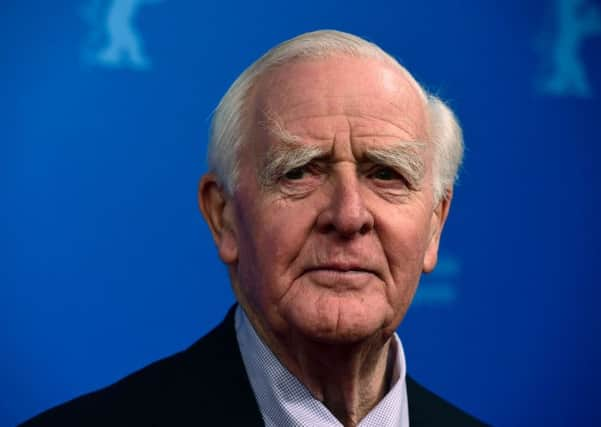Book review: Agent Running in the Field, by John Le Carré


Nat has spent years running agents in the field. Now he has been called home and is parked in a near moribund section. There is, however, the prospect of mounting an operation against a disgusting and filthy rich Russian oligarch, resident in London. But, of course, he has influential connections, one of them a Tory peeress, herself one of the super-rich. Will the operation be allowed to go ahead?
Nat has another charge, a young Russian student, highly trained in the spook school. He has defected because he is gay, but in the view of his employers in Moscow he is a sleeping agent, a plant; and indeed he may be that. Reluctantly, or with an appearance of reluctance, he obeys Nat’s directions to follow the instructions he receives from his old employers; and this leads to the surprising involvement of Ed, who immediately becomes an object of suspicion; Nat likewise on account of their friendship.
Advertisement
Hide AdLe Carré’s mastery of tradecraft is as compelling as ever, and the long scene telling how Ed is caught in a spider’s web is as compelling as it is perplexing. There’s a very nice twist to it which took me by surprise.
The novel has been trailed as an anti-Brexit, anti-Trump book, and it is indeed that, the narrator being in understated agreement with the angry idealist, Ed. But it goes beyond that. Le Carré’s subject has always been corruption – corruption of the intellect and the spirit, the corrupting influence of power and money. “Radix malorum est cupiditas,” and the irresponsibly selfish and unscrupulous rich occupy one of the lower circles in Le Carré’s Inferno.
Yet this is a warmer novel than many of Le Carre’s books. This is partly because Nat is a fundamentally decent man, who has survived his profession’s deformation of character, helped in this by his intelligent and admirable wife, a civil rights lawyer; warmer also, perhaps, because it is written in the first person and it is natural to develop a liking for a first-person narrator. Moreover, the story is more straightforward and the narrative lines clearer than was the case in Le Carré’s masterpieces, which I take to be Tinker Tailor Soldier Spy, Smiley’s People and A Perfect Spy. There are gleams of sunlight, suggestions of the possibility of happiness here, with the grey of the secret world being touched by rosy pink.
This is Le Carré’s 26th novel and, of course, it has long been obvious that it is absurd to regard him as a genre novelist. He is indeed more serious than many much admired literary novelists, as well as being more entertaining. There are good novelists whom one enjoys because they convincingly translate our experience of life to the page. But there are others, like Joseph Conrad, Graham Greene and Muriel Spark, who make you see the world around you in a different way, whether that is delightful or disturbing or indeed, both. Le Carré has always been such a writer. Well on in his ninth decade, his intellectual and emotional energy is undiminished. He remains angered by what should anger us all: duplicity, treachery, the arrogance and indifference of wealth and power, the readiness to use others as mere instruments. It is natural now that his masterpieces are behind him, but this is a very good, engaging and enjoyable novel, his best, I should say, since A Most Wanted Man. Allan Massie
Agent Running in the Field, by John Le Carré, Viking, 281pp, £20